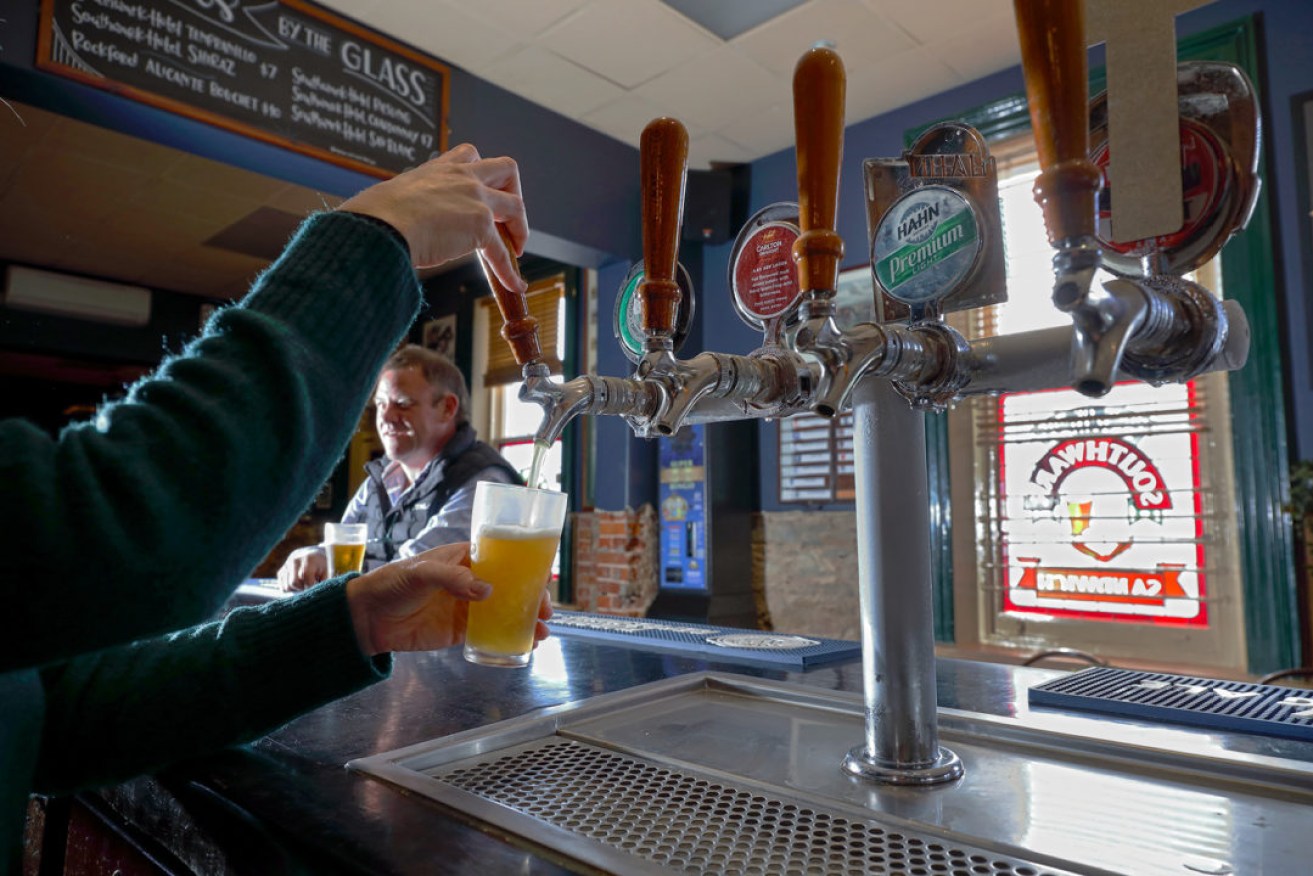Capacity at pubs, clubs, restaurants to increase – against health advice
Caps on seated venues will be lifted while density requirements will be significantly eased in a major windback of South Australia’s COVID restrictions – with the Government conceding the move was at odds with SA Health advice.

Pubs such as Thebarton's Southwark Hotel will be able to increase capacity to 75 per cent following changes to South Australia's coronavirus restrictions, announced today. Picture: Tony Lewis/InDaily.
Premier Steven Marshall and state coordinator Grant Stevens, the SA Police commissioner, revealed a raft of changes they said had been facilitated by the ongoing vaccine rollout and good results from recent major events, including the Adelaide and Fringe festivals, WOMADelaide and Adelaide Oval’s hosting of 40,000 for Round One of the AFL season.
In a major concession to a desperate hospitality industry, the current ‘one person per two square metre rule’ for venues will go to a ‘three-per-four square metres’ requirement from midnight next Tuesday – which Marshall said “equates to roughly 75 per cent” of capacity ahead of the Easter long weekend.
“I know this will be a massive relief for many organisations in SA,” he said.
“They want to see that density level increased so they can create more jobs – that’s what this is all about.”
Caps on indoor seated venues such as churches, cinemas and theatres will be lifted entirely from the same date, although masks must be worn by patrons once the venue reaches over 50 per cent of its seating capacity.
Food and beverages in cinemas and similar venues can still be consumed, but masks must be replaced at other times.
Dancefloor restrictions will also be lifted entirely on all venues of up to 1000 people, although those holding more than 1000 patrons will still be required to submit a bespoke COVID management plan to SA Health for approval.
Caps will remain on gatherings in private venues at 200.
“SA has done extraordinarily well during the festival, Fringe and WOMAD period, people are following instructions to the letter,” Marshall said.
“The rollout of the vaccination program is also going well and this has given the Transition Committee great confidence to ease restrictions.”
However, Stevens conceded that SA Health representatives on the Committee had taken a different view.
“The strictest application of the health advice, looking purely at public health, would probably see retention of the current restrictions arrangements,” he said.
“But there was acknowledgement generally that there are other perspectives in terms of community impact that need to be considered.”
Asked whether that meant SA Health had advised against the changes, he said: “You could probably couch it in those terms, but it’s more constructive to say there was a discussion where all the factors to be considered were put on the table, and my obligation as state coordinator is to make a decision based on all the advice that’s put to me.”
Stevens also said police would scale back their presence at Adelaide Airport in coming days, although masks would still be mandated for all arrivals.
He indicated he hoped to ease restrictions further as the vaccine rollout continued, saying: “We’re not at base level at this point in time.”
Today’s rhetoric was a sharp departure from Marshall’s previous mantra that his Government would always “follow the health advice” in relation to the pandemic.
“I don’t think you could say it was overruled,” Marshall said today.
“Everybody puts on the table what their ideal situation is, it’s a negotiation [and] we’ve got to look at a balanced situation.
“We’ve got to take into account health and that’s always got to be number one – but also economic and social [considerations] because if you get those wrong, quite frankly, you end up with health implications… [chief public health officer] Nicola Spurrier understands that.”
Marshall said that “clinicians want to be as risk averse as possible, and so they should be, but we’ve got take [other] things into account”.
He said, however, that health authorities had an effective “right of veto” and “this has been the same methodology we’ve had in Transition Committee right from day one”.




